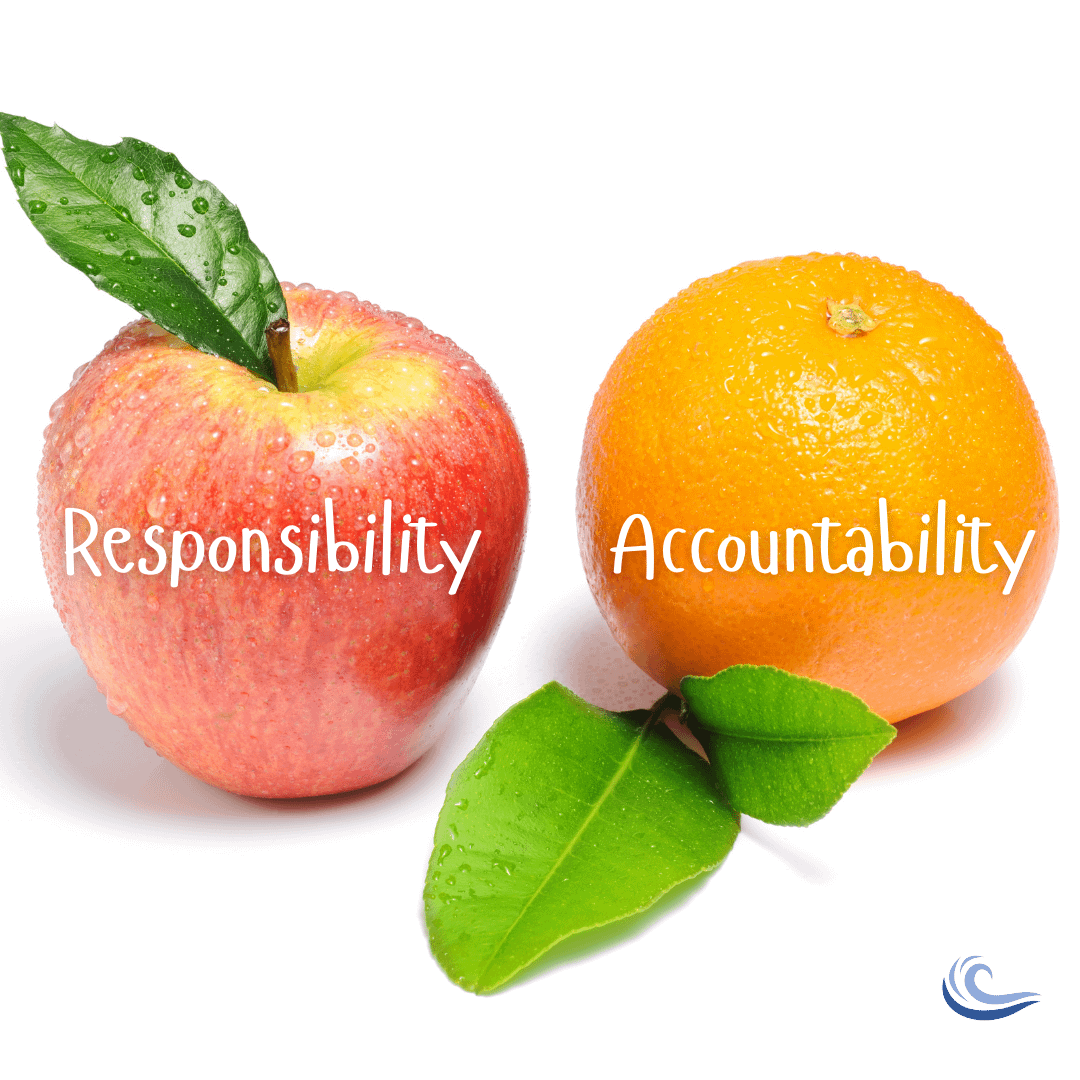The terms “responsibility” and “accountability” are often misinterpreted as interchangeable. However, they represent very distinct concepts that are as different as apples and oranges. Understanding the difference between them can play a crucial role in fostering effective teamwork, leadership and personal development at your organization. So, let’s define each of them and look at the role they play in the workplace.
Responsibility Defined
The fundamental description of “responsibility” is a “have-too.” Responsibility is the specific obligations or duties assigned to an individual or group. It includes tasks the individual or group is expected to complete. As our focus is the workplace, a relevant example might be a job description listing the responsibilities associated with a particular role at an organization.
There are some very specific qualities tied to “Responsibility”. The first is that responsibilities are task-oriented and specific to required duties. Responsibilities can and are often assigned to others, in other words, delegated. For example, a manager might delegate certain tasks or duties to individuals or the team they manage. Responsibility is proactive and often involves taking the initiative to address tasks or duties i.e. taking responsibility.
Accountability Defined
The fundamental description of “accountability” is that it is a choice. Accountability is choosing to be answerable for outcomes good or bad. It involves acknowledging and accepting the consequences of one’s actions, whether they lead to success or failure.
As with responsibility, there are some very specific qualities tied to “Accountability”. The first is that accountability is outcome-focused and tied to the results of actions and decisions. The second is that accountability cannot be delegated, it rests with the individual. Think “The buck stops here.” For example, even if a manager delegates the tasks, they are still accountable for their team’s performance of those tasks. Lastly, accountability is reactive in nature and highly focused on responding to outcomes, learning from experiences and continuous improvement.
Responsibility & Accountability in the Workplace
While responsibility and accountability are very different, they are interwoven in the workplace. A responsible person is expected to fulfill their duties, while an accountable person must own the results of those duties. However, to gain a higher level of accountability at your organization, there must be a focus on clear explanations of responsibilities.
Benefits of Distinguishing Between the Two
Now that you have an understanding of the differences between responsibility and accountability you will be able to clarify roles and expectations within your organization, reducing confusion and potential conflicts. You can now empower individuals to take ownership of their tasks because when your team knows they are accountable for the outcomes they take their responsibilities more seriously. Accountability can also be characterized by its focus on continuous improvement so an accountable workforce will be one that seeks improvement and growth, leading to higher productivity.
Recognizing the difference between responsibility and accountability will help you to foster a productive workplace environment. By clearly defining roles and emphasizing the importance of both concepts, individuals and organizations can cultivate a culture of trust, ownership and continuous improvement. Embracing both responsibility and accountability results in enhanced performance and stronger relationships, ultimately paving the way for your organization’s success.

Jennifer Fullman, SHRM-SCP
Principal, Estuary Human Resources
Get in Touch
Reach out with questions.
Get the Newsletter
Subscribe to our newsletter.
Schedule Time
Schedule a free consultation.

